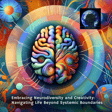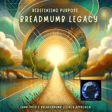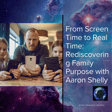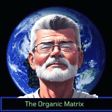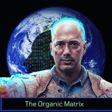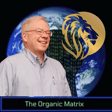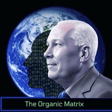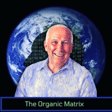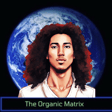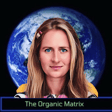
The Healing Connection: Allie Cass on Tapping into the Mind-Body Link for Optimal Health
"Are you ready to unlock the true potential of the mind-body connection and conquer health challenges? In this powerful episode of The Organic Matrix Podcast, we explore the incredible impact our beliefs have on our health and well-being. Our guest, Allie Cass, is an expert in holistic health, specializing in gut health, hormones, metabolic health, and fat loss. With her unique insights and practical tips, she guides us on how to effectively use the mind-body connection to improve our everyday lives.
Join us as we delve into Allie's origin story, her discoveries as a healer and coach, and how she incorporates beliefs and the mind-body connection into her own health journey. Learn how to reshape beliefs that no longer serve you, build discipline, and teach yourself to pursue long-term health instead of immediate gratification.
Don't miss this life-changing episode! Subscribe to The Organic Matrix Podcast and follow us on social media to stay updated on all things related to personal growth and development. Check out our website at www.organicmatrix.net for more information and resources.
If you're inspired to work personally with Allie Cass and tap into her wealth of knowledge, visit her website at https://www.alliecasshealth.com to start transforming your health today!"
If you're enjoying the show, there are two easy ways you can help us grow and reach even more amazing Matrix members:
- Share the show with your friends and followers on social media. Word of mouth is one of the most powerful ways to spread the word about our show and help us reach new listeners.
- Leave us a review on your favorite podcast platform. Not only does this help us improve the show and serve our audience better, but it also helps us rank higher in search results and reach more people.
Every share and review helps us grow and reach more people looking to level up their personal and professional growth. We appreciate your support and look forward to continuing to serve our incredible community of Matrix members. Thank you!"
Find our past episodes and tools to navigate through your Matrix on our website WWW.OrganicMatrix.net
BlendJet🥤 Tired of overpriced smoothies? Make your own with BlendJet 2 portable blender! Use code OrganicMatrix12 for 12% OFF & free shipping!🔥
https://zen.ai/organicmatrix12
Laird Superfood☕ Switch to all-natural, clean-energy Laird Superfood Creamers. Use code organicmatrix for 15% OFF at lairdsuperfood.com 🌱💥
Wongo Puzzles🧩 Upgrade to premium wooden Wongo Puzzles for endless fun! Use code organicmatrix for 10% OFF at wongopuzzles.com🌟🎁 https://zen.ai/organicmatrix10
Bulk Supplements💊 Discover pure, affordable supplements at BulkSupplements.com! Use code OrganicMatrix for a discount on future purchases!💪🌈







